| 1 x afterRenderComponent com_tags (1.81MB) (29.95%) | 79.08ms |
| 1 x afterRenderRawModule mod_tags_popular (Search) (17.94KB) (18.64%) | 49.22ms |
| 1 x afterRenderRawModule mod_articles_category (READ MORE...) (4.15KB) (16.37%) | 43.22ms |
| 1 x afterInitialise (1.28MB) (11.64%) | 30.74ms |
| 1 x beforeRenderRawModule mod_articles_category (READ MORE...) (423.86KB) (4.21%) | 11.12ms |
| 1 x afterRender (369.3KB) (3.61%) | 9.52ms |
| 1 x afterRoute (840.03KB) (3.11%) | 8.20ms |
| 1 x afterDispatch (27.47KB) (1.58%) | 4.16ms |
| 1 x beforeRenderRawModule mod_custom (Chronic fatigue tied Alan to his bed but Q10 capsules saved him:) (244.28KB) (1.34%) | 3.54ms |
| 1 x afterLoad (456.41KB) (1.16%) | 3.05ms |
| 1 x afterRenderRawModule mod_finder () (128.59KB) (0.95%) | 2.50ms |
| 1 x afterRenderRawModule mod_languages (Sprogskift) (22.53KB) (0.79%) | 2.10ms |
| 1 x beforeRenderComponent com_tags (20.75KB) (0.76%) | 2.00ms |
| 1 x afterRenderRawModule mod_menu (Main Menu - English) (192.45KB) (0.68%) | 1.80ms |
| 1 x afterRenderRawModule mod_custom () (22.66KB) (0.45%) | 1.18ms |
| 1 x After Access::preloadComponents (all components) (103.05KB) (0.35%) | 929μs |
| 1 x afterRenderRawModule mod_menu (Main Menu - English) (6.3KB) (0.32%) | 836μs |
| 1 x afterRenderRawModule mod_finder () (6.29KB) (0.31%) | 819μs |
| 1 x beforeRenderRawModule mod_menu (Main Menu - English) (29.14KB) (0.28%) | 740μs |
| 1 x afterRenderRawModule mod_languages (Sprogskift Mobil) (3.89KB) (0.26%) | 697μs |
| 1 x afterRenderRawModule mod_menu (Are you getting enough vitamins and minerals?) (22.39KB) (0.25%) | 647μs |
| 1 x Before Access::preloadComponents (all components) (50.9KB) (0.24%) | 626μs |
| 1 x beforeRenderModule mod_articles_category (READ MORE...) (20.82KB) (0.19%) | 513μs |
| 1 x afterRenderRawModule mod_menu (Did you know.....) (25.52KB) (0.11%) | 301μs |
| 1 x afterRenderRawModule mod_menu (The key to increased well-being) (17.83KB) (0.11%) | 281μs |
| 1 x afterRenderRawModule mod_custom (BOOST YOUR IMMUNE DEFENSE) (3.8KB) (0.09%) | 225μs |
| 1 x beforeRenderRawModule mod_custom () (8.66KB) (0.08%) | 204μs |
| 1 x afterRenderRawModule mod_custom () (904B) (0.06%) | 166μs |
| 1 x beforeRenderRawModule mod_custom () (6.62KB) (0.06%) | 160μs |
| 1 x beforeRenderRawModule mod_menu (Main Menu - English) (5.07KB) (0.06%) | 157μs |
| 1 x afterRenderRawModule mod_custom () (896B) (0.05%) | 132μs |
| 1 x beforeRenderRawModule mod_custom () (688B) (0.03%) | 85μs |
| 1 x afterRenderModule mod_custom (Chronic fatigue tied Alan to his bed but Q10 capsules saved him:) (1.3KB) (0.03%) | 70μs |
| 1 x afterRenderRawModule mod_custom (Chronic fatigue tied Alan to his bed but Q10 capsules saved him:) (1.06KB) (0.03%) | 68μs |
| 1 x afterRenderModule mod_menu (Main Menu - English) (4.86KB) (0.03%) | 68μs |
| 1 x After Access::getAssetRules (id:8 name:com_content) (7.05KB) (0.02%) | 63μs |
| 1 x afterRenderRawModule mod_custom (Get additionel and more detailed knowledge ) (1.55KB) (0.02%) | 60μs |
| 1 x afterRenderRawModule mod_custom (Check this before you buy a Q10 product) (944B) (0.02%) | 60μs |
| 1 x afterRenderModule mod_custom () (1.23KB) (0.02%) | 59μs |
| 1 x afterRenderModule mod_finder () (1.23KB) (0.02%) | 56μs |
| 1 x afterRenderModule mod_menu (Main Menu - English) (1.25KB) (0.02%) | 51μs |
| 1 x afterRenderModule mod_custom (Weight loss that works) (1.27KB) (0.02%) | 50μs |
| 1 x Before Access::getAssetRules (id:8 name:com_content) (840B) (0.02%) | 44μs |
| 1 x afterRenderModule mod_finder () (3.29KB) (0.02%) | 43μs |
| 1 x afterRenderModule mod_custom () (2.43KB) (0.02%) | 43μs |
| 1 x afterRenderModule mod_articles_category (READ MORE...) (1.25KB) (0.02%) | 40μs |
| 1 x afterRenderRawModule mod_custom (Useful Links) (1.02KB) (0.01%) | 36μs |
| 1 x beforeRenderRawModule mod_custom (Get additionel and more detailed knowledge ) (816B) (0.01%) | 34μs |
| 1 x beforeRenderRawModule mod_custom (BOOST YOUR IMMUNE DEFENSE) (6.45KB) (0.01%) | 31μs |
| 1 x afterRenderModule mod_languages (Sprogskift Mobil) (1.27KB) (0.01%) | 30μs |
| 1 x afterRenderModule mod_custom (Cholesterol-lowering without side effects:) (1.28KB) (0.01%) | 29μs |
| 1 x afterRenderModule mod_languages (Sprogskift) (5.31KB) (0.01%) | 25μs |
| 1 x afterRenderModule mod_custom () (2.71KB) (0.01%) | 25μs |
| 1 x afterRenderRawModule mod_custom (Cholesterol-lowering without side effects:) (1.06KB) (0.01%) | 24μs |
| 1 x afterRenderModule mod_custom (BOOST YOUR IMMUNE DEFENSE) (1.28KB) (0.01%) | 24μs |
| 1 x afterRenderRawModule mod_custom (Overview of vitamins, minerals, and essential fatty acids) (960B) (0.01%) | 23μs |
| 1 x afterRenderModule mod_menu (The key to increased well-being) (1.28KB) (0.01%) | 22μs |
| 1 x afterRenderModule mod_custom (Antiaging) (3.77KB) (0.01%) | 22μs |
| 1 x afterRenderModule mod_tags_popular (Search) (1.27KB) (0.01%) | 21μs |
| 1 x afterRenderRawModule mod_custom (Are you taking supplements) (1.03KB) (0.01%) | 21μs |
| 1 x beforeRenderRawModule mod_languages (Sprogskift) (3.94KB) (0.01%) | 21μs |
| 1 x afterRenderModule mod_custom (Get additionel and more detailed knowledge ) (1.3KB) (0.01%) | 20μs |
| 1 x afterRenderModule mod_custom (Overview of vitamins, minerals, and essential fatty acids) (1.31KB) (0.01%) | 20μs |
| 1 x afterRenderModule mod_custom (Q10 goes by many names) (1.27KB) (0.01%) | 20μs |
| 1 x afterRenderModule mod_custom (Check this before you buy a Q10 product) (1.28KB) (0.01%) | 20μs |
| 1 x afterRenderModule mod_custom (Are you taking supplements) (1.28KB) (0.01%) | 20μs |
| 1 x afterRenderModule mod_custom (Useful Links) (1.27KB) (0.01%) | 20μs |
| 1 x afterRenderModule mod_menu (Are you getting enough vitamins and minerals?) (1.3KB) (0.01%) | 20μs |
| 1 x afterRenderModule mod_menu (Did you know.....) (1.27KB) (0.01%) | 20μs |
| 1 x afterRenderRawModule mod_custom (Q10 goes by many names) (928B) (0.01%) | 19μs |
| 1 x beforeRenderRawModule mod_menu (The key to increased well-being) (736B) (0.01%) | 19μs |
| 1 x beforeRenderRawModule mod_menu (Did you know.....) (720B) (0.01%) | 19μs |
| 1 x afterRenderRawModule mod_custom (Weight loss that works) (1.03KB) (0.01%) | 18μs |
| 1 x afterRenderRawModule mod_custom (Antiaging) (912B) (0.01%) | 18μs |
| 1 x beforeRenderRawModule mod_languages (Sprogskift Mobil) (912B) (0.01%) | 18μs |
| 1 x beforeRenderRawModule mod_tags_popular (Search) (2.36KB) (0.01%) | 16μs |
| 1 x beforeRenderRawModule mod_custom (Cholesterol-lowering without side effects:) (368B) (0.01%) | 15μs |
| 3 x beforeRenderModule mod_custom () (704B) (0.01%) | 14μs |
| 1 x beforeRenderRawModule mod_custom (Useful Links) (1.06KB) (0.01%) | 14μs |
| 1 x beforeRenderRawModule mod_finder () (6.34KB) (0.01%) | 14μs |
| 2 x beforeRenderModule mod_finder () (704B) (0%) | 13μs |
| 1 x beforeRenderRawModule mod_menu (Are you getting enough vitamins and minerals?) (2.5KB) (0%) | 12μs |
| 1 x beforeRenderModule mod_custom (BOOST YOUR IMMUNE DEFENSE) (6.81KB) (0%) | 12μs |
| 1 x beforeRenderModule mod_tags_popular (Search) (1.98KB) (0%) | 12μs |
| 1 x beforeRenderModule mod_menu (Are you getting enough vitamins and minerals?) (2.13KB) (0%) | 11μs |
| 1 x beforeRenderRawModule mod_custom (Overview of vitamins, minerals, and essential fatty acids) (768B) (0%) | 11μs |
| 1 x beforeRenderRawModule mod_custom (Are you taking supplements) (736B) (0%) | 11μs |
| 2 x beforeRenderModule mod_menu (Main Menu - English) (720B) (0%) | 11μs |
| 1 x beforeRenderRawModule mod_custom (Q10 goes by many names) (608B) (0%) | 10μs |
| 1 x beforeRenderModule mod_custom (Antiaging) (336B) (0%) | 10μs |
| 1 x beforeRenderModule mod_menu (The key to increased well-being) (352B) (0%) | 10μs |
| 1 x beforeRenderModule mod_menu (Did you know.....) (336B) (0%) | 10μs |
| 1 x beforeRenderModule mod_custom (Get additionel and more detailed knowledge ) (1.17KB) (0%) | 10μs |
| 1 x beforeRenderRawModule mod_custom (Weight loss that works) (736B) (0%) | 9μs |
| 1 x beforeRenderModule mod_custom (Overview of vitamins, minerals, and essential fatty acids) (384B) (0%) | 9μs |
| 1 x beforeRenderModule mod_custom (Q10 goes by many names) (208B) (0%) | 9μs |
| 1 x beforeRenderModule mod_custom (Are you taking supplements) (352B) (0%) | 9μs |
| 1 x beforeRenderModule mod_custom (Useful Links) (1.44KB) (0%) | 9μs |
| 1 x beforeRenderRawModule mod_finder () (2.3KB) (0%) | 9μs |
| 1 x beforeRenderRawModule mod_custom (Antiaging) (720B) (0%) | 9μs |
| 1 x beforeRenderModule mod_custom (Check this before you buy a Q10 product) (352B) (0%) | 9μs |
| 1 x beforeRenderRawModule mod_custom (Check this before you buy a Q10 product) (752B) (0%) | 8μs |
| 1 x beforeRenderModule mod_custom (Weight loss that works) (336B) (0%) | 8μs |
| 1 x beforeRenderModule mod_languages (Sprogskift) (720B) (0%) | 7μs |
| 1 x beforeRenderModule mod_custom (Chronic fatigue tied Alan to his bed but Q10 capsules saved him:) (768B) (0%) | 5μs |
| 1 x beforeRenderModule mod_languages (Sprogskift Mobil) (720B) (0%) | 3μs |
| 1 x beforeRenderModule mod_custom (Cholesterol-lowering without side effects:) (752B) (0%) | 2μs |
 The number of older people is constantly increasing, and more and more people suffer from Alzheimer’s disease and other types of dementia. Apparently, seniors who take a daily multivitamin can improve their memory and slow down their cognitive decline, according to a meta-analysis that is published in Journal of Clinical Nutrition. Older people generally have increased need for certain vitamins and minerals because of poor nutrient absorption in the digestive system, impaired enzyme functions, oxidative stress, and regular use of medical drugs that can interact with the nutrients. But how do different vitamins and minerals affect brain health?
The number of older people is constantly increasing, and more and more people suffer from Alzheimer’s disease and other types of dementia. Apparently, seniors who take a daily multivitamin can improve their memory and slow down their cognitive decline, according to a meta-analysis that is published in Journal of Clinical Nutrition. Older people generally have increased need for certain vitamins and minerals because of poor nutrient absorption in the digestive system, impaired enzyme functions, oxidative stress, and regular use of medical drugs that can interact with the nutrients. But how do different vitamins and minerals affect brain health?







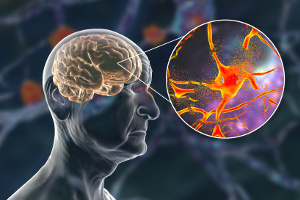 Alzheimer’s is an insidious disease and the leading cause of dementia. It’s also one of the major causes of death in old age. Diet plays a major role in preventing the disease. In fact, having high concentrations of the
Alzheimer’s is an insidious disease and the leading cause of dementia. It’s also one of the major causes of death in old age. Diet plays a major role in preventing the disease. In fact, having high concentrations of the 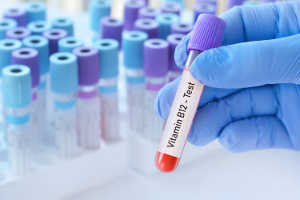 Lack of
Lack of  Apparently so. According to a new study published in the journal Alzheimer’s and Dementia, older people who take a daily multivitamin supplement for several years are far less likely to develop dementia, Alzheimer’s disease, and other types of cognitive decline. The new study supports earlier research where it has been seen that the different vitamins and minerals increase cerebral blood flow and protect neurons. It pays off to choose high-quality supplements to make sure that the nutrients are properly absorbed in the body.
Apparently so. According to a new study published in the journal Alzheimer’s and Dementia, older people who take a daily multivitamin supplement for several years are far less likely to develop dementia, Alzheimer’s disease, and other types of cognitive decline. The new study supports earlier research where it has been seen that the different vitamins and minerals increase cerebral blood flow and protect neurons. It pays off to choose high-quality supplements to make sure that the nutrients are properly absorbed in the body.

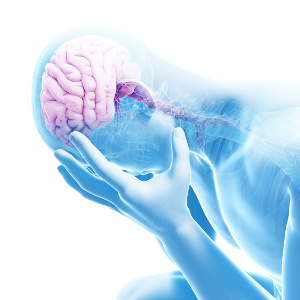 There is a link between depression, dementia and Alzheimer’s disease. Also, it appears that chronic stress contributes to oxidative stress and brain cell damage. In a review article that is published in the science journal Antioxidants, researchers look closer at how oxidative stress affects the brain. They also study how antioxidants can be included in the prevention and treatment of Alzheimer’s disease, and why the most promising results are seen with selenium, Q10, melatonin, vitamin E, turmeric, and polyphenols. With regard to depression, selenium, zinc, vitamin E, turmeric, and saffron have demonstrated the greatest potential.
There is a link between depression, dementia and Alzheimer’s disease. Also, it appears that chronic stress contributes to oxidative stress and brain cell damage. In a review article that is published in the science journal Antioxidants, researchers look closer at how oxidative stress affects the brain. They also study how antioxidants can be included in the prevention and treatment of Alzheimer’s disease, and why the most promising results are seen with selenium, Q10, melatonin, vitamin E, turmeric, and polyphenols. With regard to depression, selenium, zinc, vitamin E, turmeric, and saffron have demonstrated the greatest potential.

 Brain cells (neurons) contain comparatively large concentrations of
Brain cells (neurons) contain comparatively large concentrations of 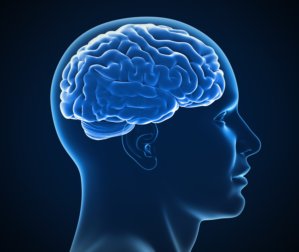 Alzheimer’s disease is the leading cause of dementia. Science has observed changes in the brain that show decades before the disease surfaces. According to a study carried out by the Italian neurologist Lisa Mosconi, eating a Mediterranean diet helps lower the risk of some of these changes that signal the onset of the disease. The study results suggest that one can help prevent this common neurological disorder by eating Mediterranean-style food. What is also important is to focus on having stable blood sugar levels and getting the right nutrients that strengthen and protect the brain.
Alzheimer’s disease is the leading cause of dementia. Science has observed changes in the brain that show decades before the disease surfaces. According to a study carried out by the Italian neurologist Lisa Mosconi, eating a Mediterranean diet helps lower the risk of some of these changes that signal the onset of the disease. The study results suggest that one can help prevent this common neurological disorder by eating Mediterranean-style food. What is also important is to focus on having stable blood sugar levels and getting the right nutrients that strengthen and protect the brain. Neurological diseases are on the rise and Alzheimer’s disease is one of the leading causes of dementia. Now, scientists from Boston University have discovered that slow-moving brain waves during our sleep initiate a cleansing process in the brain that protects against Alzheimer’s disease, dementia, and other neurological disorders. Also, a study of men conducted by scientists from Uppsala University in Sweden demonstrated that as little as a single night without sleep increases levels of proteins that serve as biomarkers of Alzheimer’s disease. It is therefore essential to sleep properly every single night so that we can remain mentally alert and vital. In cases where the normal guidelines for healthy sleep prove to be of little use, supplementing with the “sleep hormone” melatonin may turn out to offer relief.
Neurological diseases are on the rise and Alzheimer’s disease is one of the leading causes of dementia. Now, scientists from Boston University have discovered that slow-moving brain waves during our sleep initiate a cleansing process in the brain that protects against Alzheimer’s disease, dementia, and other neurological disorders. Also, a study of men conducted by scientists from Uppsala University in Sweden demonstrated that as little as a single night without sleep increases levels of proteins that serve as biomarkers of Alzheimer’s disease. It is therefore essential to sleep properly every single night so that we can remain mentally alert and vital. In cases where the normal guidelines for healthy sleep prove to be of little use, supplementing with the “sleep hormone” melatonin may turn out to offer relief.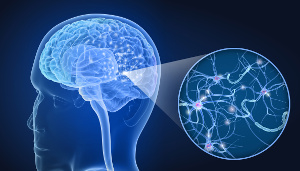 It’s commonly known that physical activity boosts the brain’s ability to form new brain cells – or neurons. Still, the underlying mechanisms have been a mystery to science. A team of Australian scientists, however, has recently discovered that, during exercise, mice produce a selenium-containing protein that helps the brain synthesize new brain cells. The scientists consider this to be a rather fantastic study, and it is assumed that
It’s commonly known that physical activity boosts the brain’s ability to form new brain cells – or neurons. Still, the underlying mechanisms have been a mystery to science. A team of Australian scientists, however, has recently discovered that, during exercise, mice produce a selenium-containing protein that helps the brain synthesize new brain cells. The scientists consider this to be a rather fantastic study, and it is assumed that 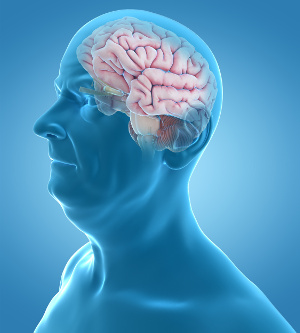 There seems to be a relation between ageing, Alzheimer’s disease, and the widespread problems with selenium deficiency. According to a new study that is published in Antioxidants, scientist have revealed how different selenium-containing proteins can affect pathological processes in the brain that are known to cause Alzheimer’s disease. They believe
There seems to be a relation between ageing, Alzheimer’s disease, and the widespread problems with selenium deficiency. According to a new study that is published in Antioxidants, scientist have revealed how different selenium-containing proteins can affect pathological processes in the brain that are known to cause Alzheimer’s disease. They believe  The brain is particularly vulnerable towards oxidative stress and local inflammation that can set the stage for Alzheimer’s disease and other neurological conditions. However, it turns out that certain selenium-containing antioxidants are able to protect the brain neurons against damage. Also, selenium supplements can improve cognitive performance in patients suffering from mild cognitive impairment and Alzheimer’s disease, according to a meta-analysis that is published in Nutrients.
The brain is particularly vulnerable towards oxidative stress and local inflammation that can set the stage for Alzheimer’s disease and other neurological conditions. However, it turns out that certain selenium-containing antioxidants are able to protect the brain neurons against damage. Also, selenium supplements can improve cognitive performance in patients suffering from mild cognitive impairment and Alzheimer’s disease, according to a meta-analysis that is published in Nutrients.
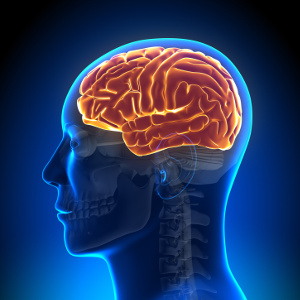 Alzheimer’s is a growing health burden worldwide, and diet appears to play a major role. A large meta-analysis published in Frontiers in Aging Neuroscience recently revealed that patients with Alzheimer’s disease have lower levels of
Alzheimer’s is a growing health burden worldwide, and diet appears to play a major role. A large meta-analysis published in Frontiers in Aging Neuroscience recently revealed that patients with Alzheimer’s disease have lower levels of  Alcohol is one of the most compromising factors when it comes to public health, and alcohol abuse comes at an enormous cost, both to the individual and to society. A large alcohol consumption contributes as a factor to insidious dementia, but according to a new study from Taiwan, supplementing with
Alcohol is one of the most compromising factors when it comes to public health, and alcohol abuse comes at an enormous cost, both to the individual and to society. A large alcohol consumption contributes as a factor to insidious dementia, but according to a new study from Taiwan, supplementing with 
 Dementia is on the rise across the globe but according to a study from University of South Australia,
Dementia is on the rise across the globe but according to a study from University of South Australia, 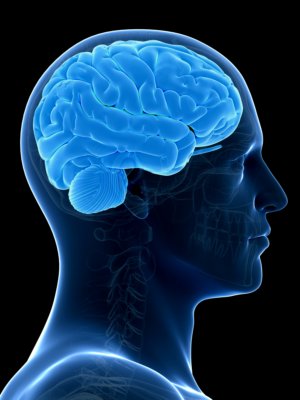 Psychological disorders represent society’s single largest disease burden, and an increasing number of people are affected by it. There can be a variety of causes, and lack of
Psychological disorders represent society’s single largest disease burden, and an increasing number of people are affected by it. There can be a variety of causes, and lack of  The number of older people is increasing rapidly, which means more and more people suffer from different types of dementia.
The number of older people is increasing rapidly, which means more and more people suffer from different types of dementia. 

 We have relatively large quantities of
We have relatively large quantities of  "After about one week of taking the Q10 supplement I could feel a huge difference," says 23-year old Alan Piccini, who has been suffering from extreme fatigue and muscle aches ever since he was a child.
"After about one week of taking the Q10 supplement I could feel a huge difference," says 23-year old Alan Piccini, who has been suffering from extreme fatigue and muscle aches ever since he was a child. “Taking capsules with co-enzyme Q10 has freed me of the severe side effects of my cholesterol lowering medicine,” Mrs Franken explains.
“Taking capsules with co-enzyme Q10 has freed me of the severe side effects of my cholesterol lowering medicine,” Mrs Franken explains.